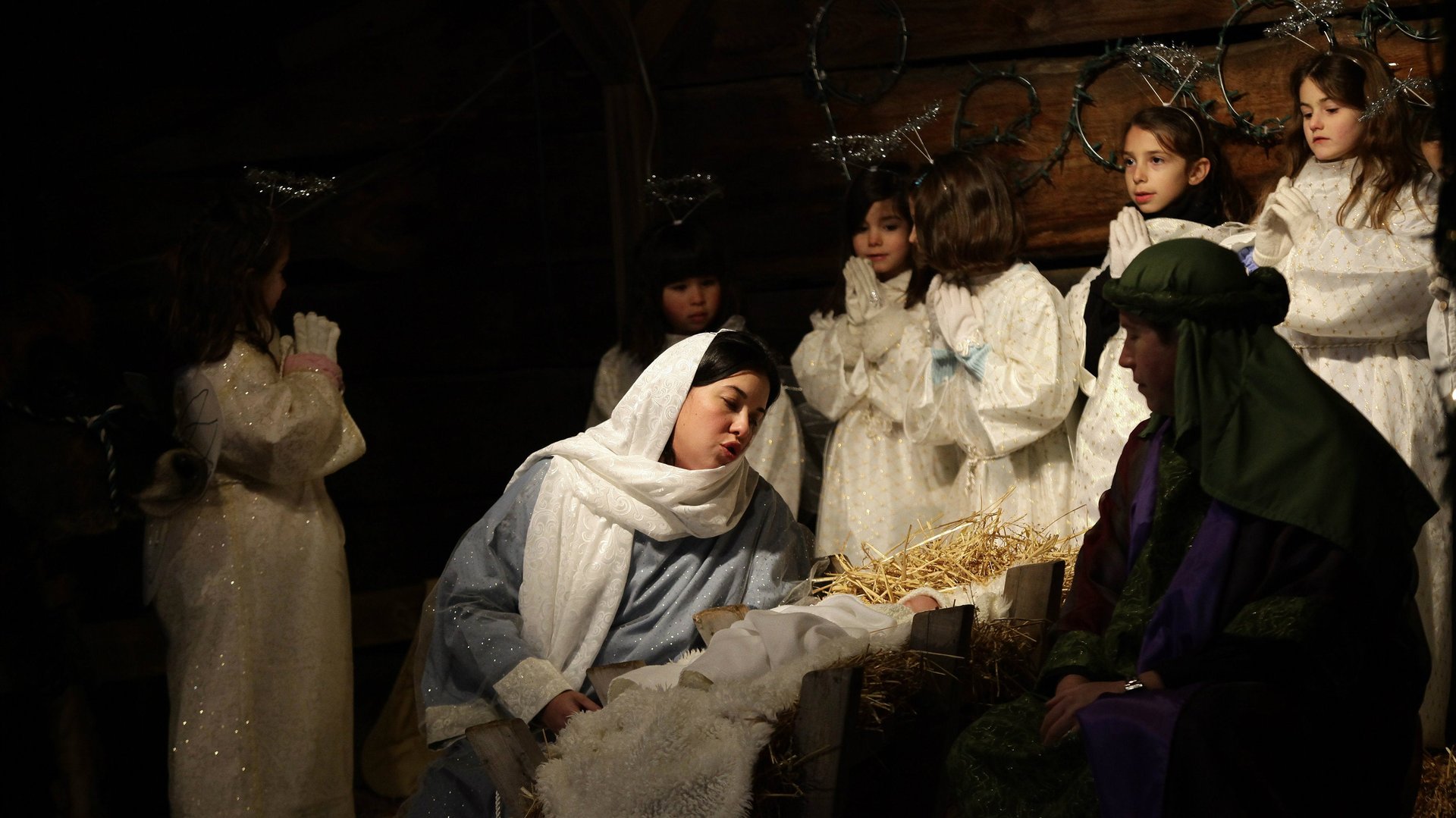Historically, Christmas is basically about drunken debauchery
The man whose viral Facebook post started the Great Starbucks Cup Debate insisted that “Starbucks REMOVED CHRISTMAS from their cups because they hate Jesus.” But despite ongoing complaints about a secular “war on Christmas,” many of the origins of the holiday have very little to do with Christ.


The man whose viral Facebook post started the Great Starbucks Cup Debate insisted that “Starbucks REMOVED CHRISTMAS from their cups because they hate Jesus.” But despite ongoing complaints about a secular “war on Christmas,” many of the origins of the holiday have very little to do with Christ.
For one thing, Luke’s gospel says that when Mary and Joseph gathered in a manger near Bethlehem, there were shepherds watching over their flock in the fields by night, which some take as evidence that Jesus was born in springtime. British theologian and Biblical scholar Adam Clarke wrote that flocks would not have been kept in the field by night any later than September, and so, “On this very ground, the nativity in December should be given up.”
But December has long been a time of festivities, and it’s likely that these have been co-opted by the Christian tradition. Matthew Nicholls, professor of classics at the University of Reading, told the BBC, ”Christmas in December is a Western, Roman idea” that answered ”the social need for a festival of some sort around that date [mid-winter].”
In the late 4th Century, Christian writer Scriptor Syrus explained that Christmas was planned to coincide with the birthday of the pagan deity Sol Invictus. He wrote:
“It was a custom of the pagans to celebrate on the same 25 December the birthday of the Sun, at which they kindled lights in token of festivity. In these solemnities and revelries the Christians also took part. Accordingly when the doctors of the Church perceived that the Christians had a leaning to this festival, they took counsel and resolved that the true Nativity should be solemnized on that day.
And both these holidays were likely inspired by the Roman festival of Saturnalia, which ran from 17 to 25 Dec. The Romans used Saturnalia as a time of wild merrymaking: Some of the more sedate activities included excessive eating and drinking, singing in the streets while naked, and exchanging gifts. These festivities then became the hallmarks of Christmas, as Stephen Nissenbaum, a historian, writes in his book, The Battle for Christmas. “In return for ensuring massive observance of the anniversary of the Savior’s birth by assigning it to this resonant date, the Church for its part tacitly agreed to allow the holiday to be celebrated more or less the way it had always been.”
In fact, Christmas was once seen as so un-Christian that various religious groups tried to ban it altogether. In the 17th century, English puritans—who believed December 25 should be treated like any other day—prohibited Christmas celebrations. The public reacted with much resentment; puritan-owned shops that had opened on Christmas were attacked and forced to close again. Oliver Cromwell, who overthrew King Charles I and ruled Britain from 1653 to 1658, saw Christmas as idolatrous and banned carolling, christmas decorations, and Christmas feasts while he was in power.
American puritans had a similar attitude; anyone found to be celebrating Christmas in Massachusetts from 1659 to 1681 would be fined 5 shillings for the offence, according to PRI, which was roughly a week’s wages. But just as in England, the ban was unpopular and gradually eased over the years. The festival was finally proclaimed a national holiday in the US in 1870.
Many of the ways we celebrate Christmas today can be attributed to secular influences, rather than religious ones. Indeed, Charles Dickens’ novel A Christmas Carol didn’t simply describe the ways the holiday was celebrated in Victorian Britain, but helped popularize many of the customs. So don’t worry about too much about the birth of Jesus tomorrow: The true spirit of Christmas has always been about eating, drinking, and having a good time.